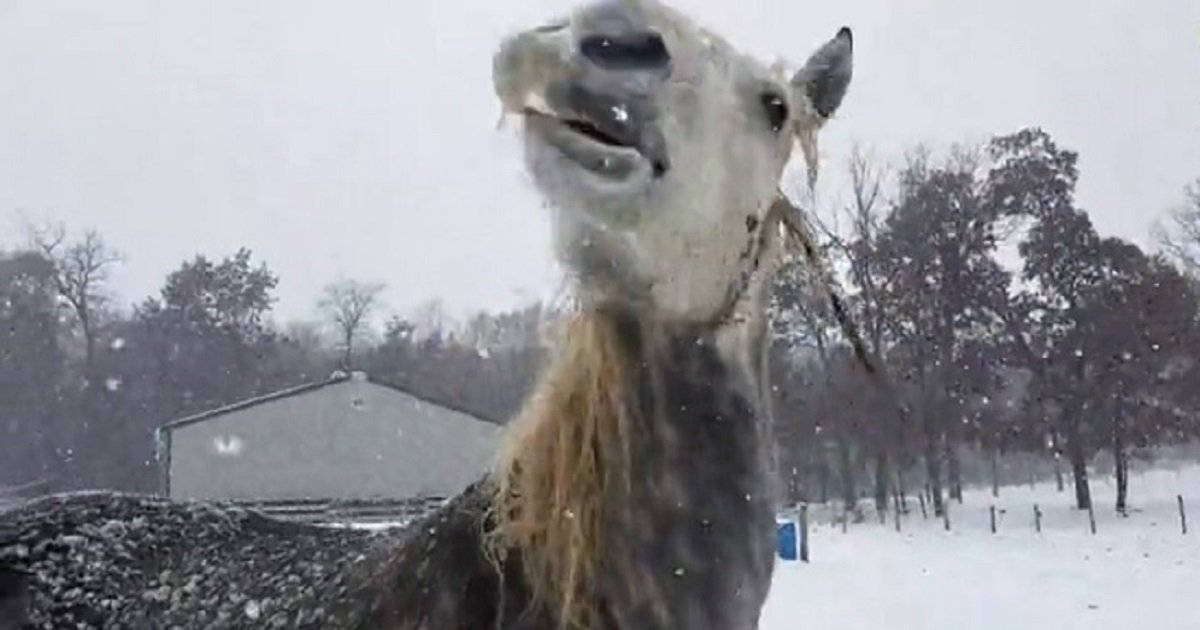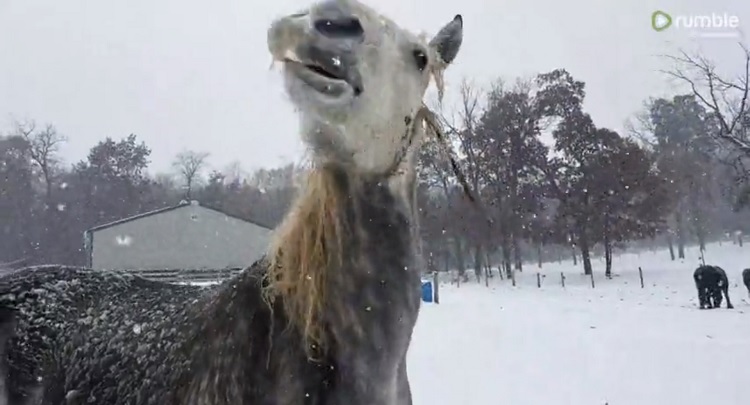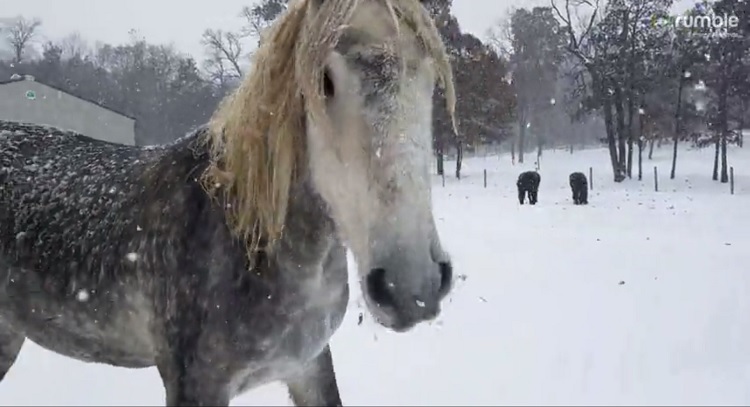There are animals that are better suited to one type of environment than others but sometimes these variations are so minimal that these animals can pretty much adapt to any weather that they encounter.
But when one encounters winter for the first time, it can catch one off-guard in the funniest way as it did to this horse as he encountered his first time in freezing weather.
It turns out that icicles had formed in the horse’s whiskers and with horses having no hands, the puzzled creature had no idea how to take it off.
Watch him try to get it off in the video below.
[rumble video_id=v5tivx domain_id=u7nb2]
Video credit: Rumble
The one taking the video chuckles a bit at the silly horse’s efforts before finally moving in to give a helping hand as the video cuts off.
In truth, horses can deal with the cold better than heat but the key is for them to have enough food. When it’s cold, a horse consumes a lot of energy just trying to keep its body warm so they need additional food in order to do that. Even during Napoleon’s withdrawal from Russia, the horses of his troops fared well even in temperatures that reached thirty degrees below zero or even colder as long as their rations lasted.
It’s not really the cold that’s problematic for the horse but being able to forage enough food to sustain themselves through a cold winter. In fact, when snow and ice accumulate in a horse’s thick and greasy winter hair, this actually helps preserve body heat.
Like most animals, free-ranging horses start to migrate to lower altitudes as winter deepens and the available food at higher climes becomes more scarce. During heavy snowfall that may isolate them, they can stand in place while pawing through the ground hoping to get any food. If they happen to be beside a tree, they will even eat the bark. And if they have a fellow horse with them, they may even eat each other’s manes just to sustain themselves in the meantime.
Needless to say, winter can be harsh for wild animals and in these cases, only the toughest and strongest will survive to see the spring.
As for domesticated horses, although the animals are well-adapted to the cold, it’s not advisable to go out riding if you don’t need to. Ice sheets are particularly dangerous as the horses can easily slip and break something. Of course, in countries where hard winters are common and the use of horses is prevalent, special horseshoes to help horses navigate through snow and ice are available.
Replaced!




